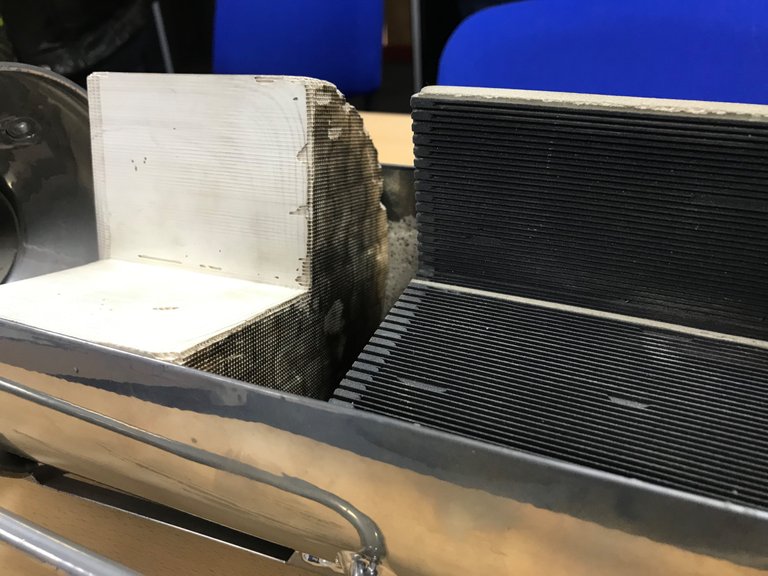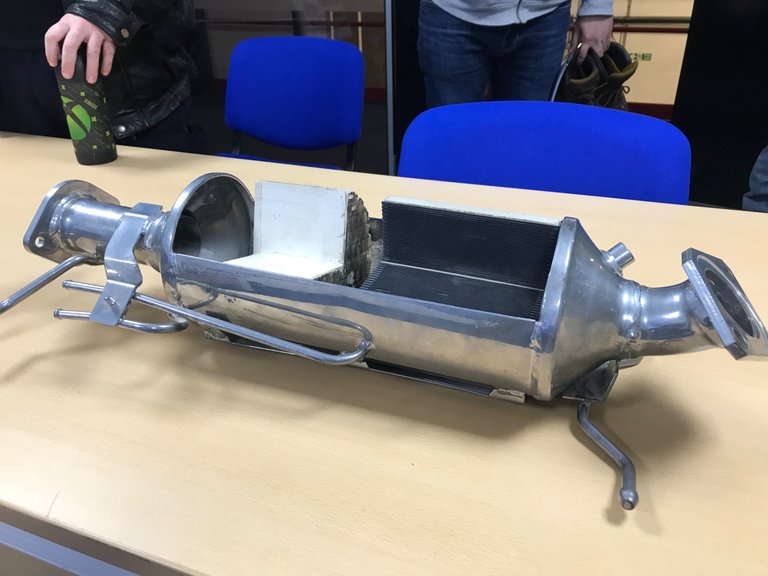It’s been an interesting week at work, and there’s nothing more interesting than seeing the destruction a 16 litre, 400 horsepower, 6-cylinder engine can inflict upon itself.
The basic principles of how a combustion engine transforms chemical energy into kinetic energy are as follows; Suck. Squeeze. Bang. Blow.
https://youtube.com/shorts/Kw0OA8IKpi0?feature=shared
To facilitate this process there are many mechanical parts all moving in time with one another. This mechanical tango is spectacular to imagine and the amount of moving parts involved is truly mind boggling. All these movements, none less important than the other, all happening within the blink of an eye over and over again.
Along side this mechanical process is a very sophisticated computer working hard to deliver a very specific and perfectly balanced chemical cocktail. A mixture that isn’t creating enough heat will cause carbon emissions, whereas a mixture that runs too hot will create NOx gasses. Both are a big no no in todays super-green conscious vehicle manufacturing industry. In reality there’s no way to achieve a “perfect burn” of the fuel and air mixture. Instead, the combustion engine gets as close to it as it possibly can. Then, from the information the ECU receives via various emission sensors, it adjusts the mixture accordingly in order to maintain maximum efficiency. A balancing act carried out in fractions of a second, and when you consider an engine typically idles at 1100 revelations per minute you begin to appreciate what an amazing feat of engineering the combustion engine really is.
The un-sung hero
All that wizardry going on inside is without a doubt quite awesome. But as wonderful as it is, it would all grind to a halt if it wasn’t for the simplest of things. Oil.
Take away the oil from your engine and you’d get maybe 3 minutes down the road. All those moving parts made of metal rubbing against each other, well, they would just heat up, expand, and then become one solid chunk of scrap metal. Catastrophic? Yes, certainly. But where’s the actual catastrophe in that? Now, if you really want an engine to go out with a bang you don’t take away all of the oil at once, you just restrict it from reaching certain parts of the engine. For example, if just one of the oil jets that lubricant the piston chambers become blocked, that would lead to a catastrophe in the literal sense. Would you like to see how much damage a fault like this can cause? Of course you do. So let’s take a look at a truck that was recovered to our workshop this week…
Here’s a picture of well lubricated and perfectly working cylinder.
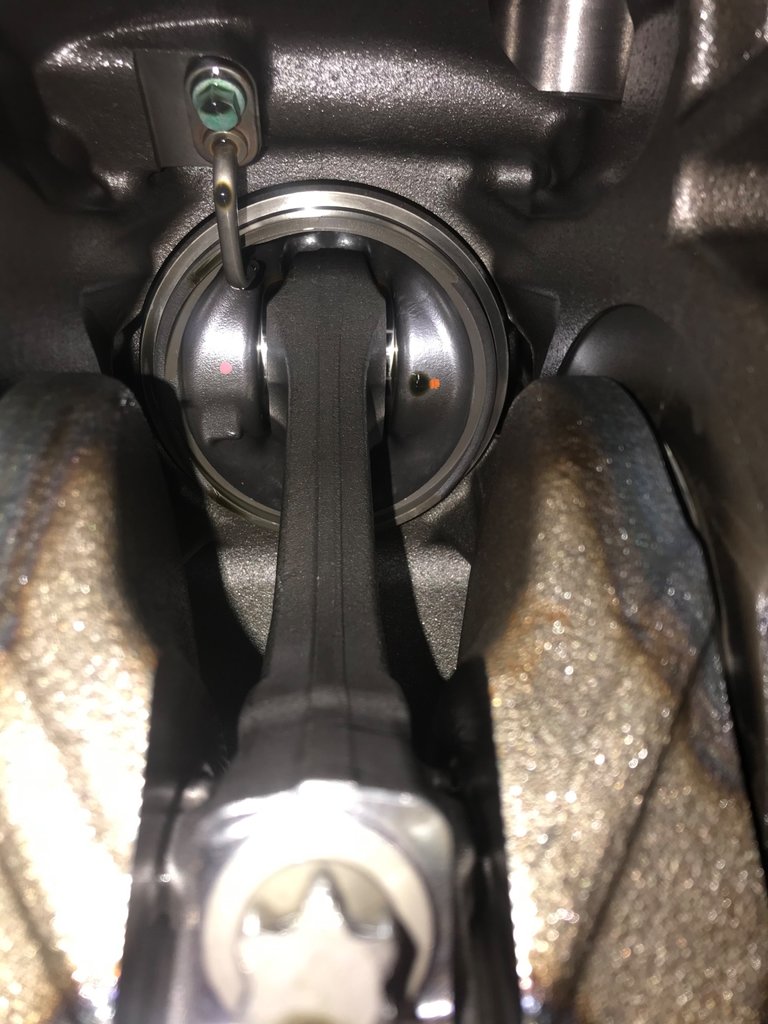
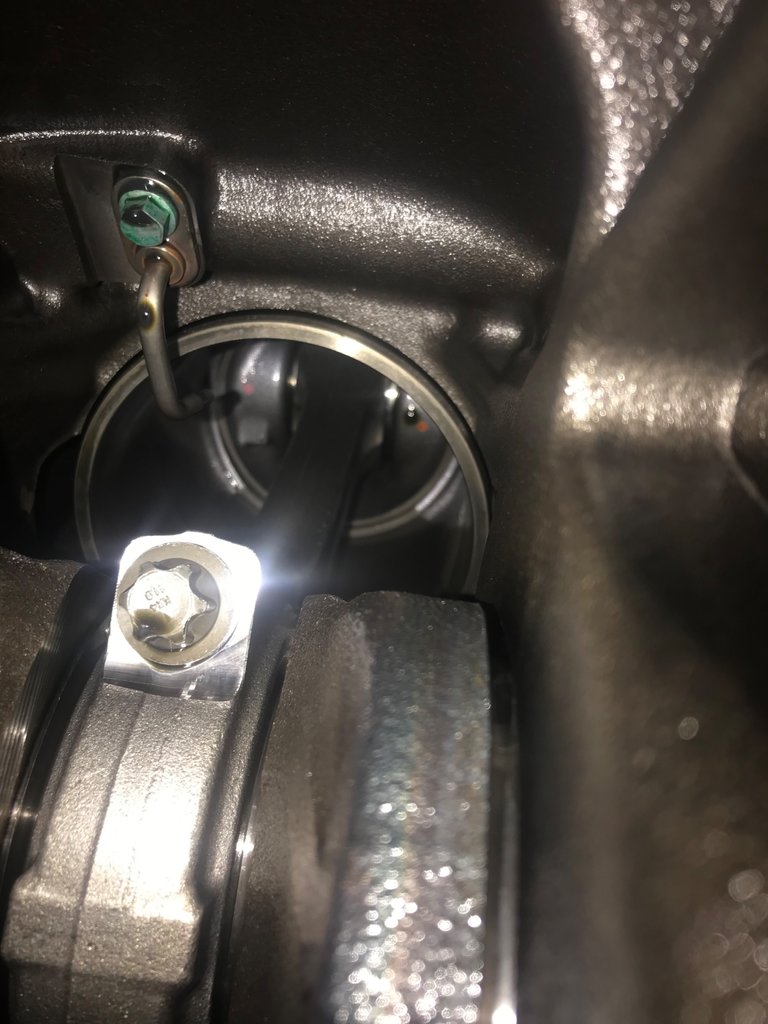
And here’s a look at a cylinder that has been starved of oil (see if you can spot the difference)
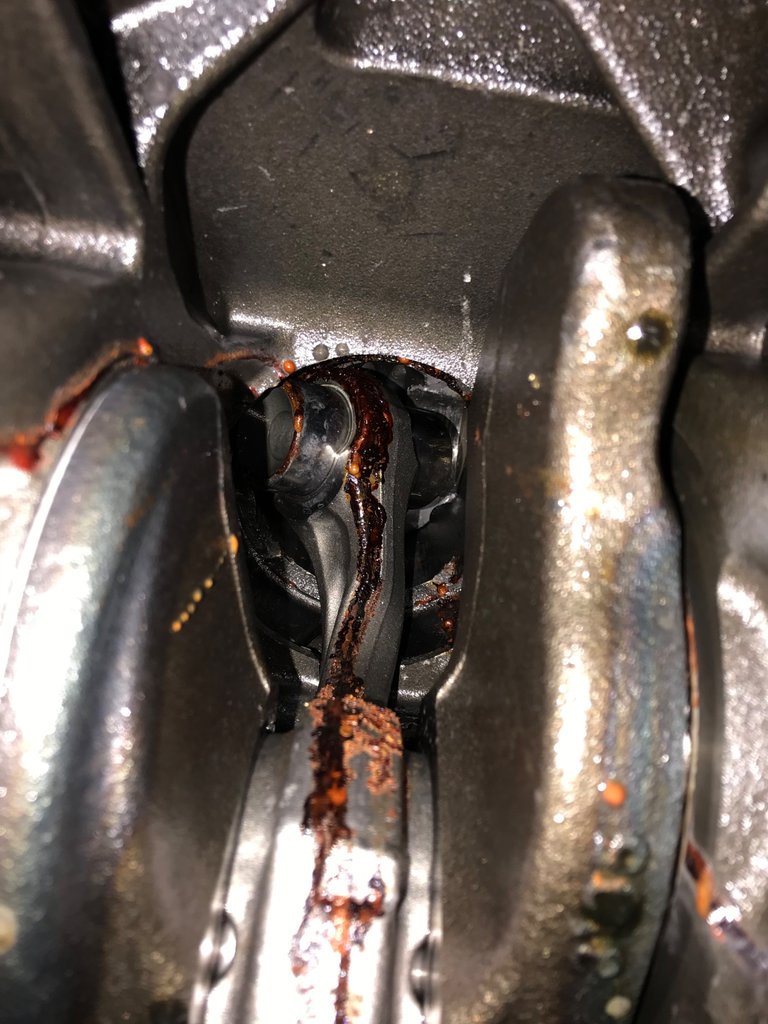
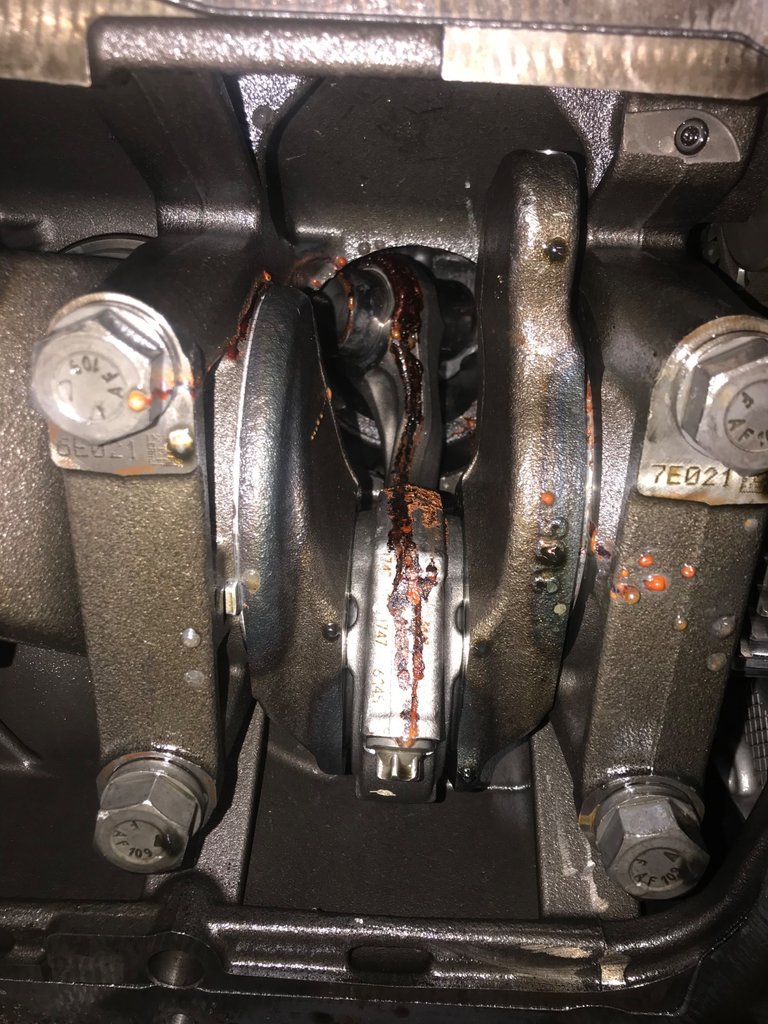
A bit of a mess, right? As you can see, the con-rod, which is a solid piece of metal the size of you forearm that connects the crank to the piston, has been twisted and bent over after breaking off from the piston and embedding itself into the chamber. The force required to cause this damage is quite considerable but 5 good pistons working against one broken piston is only ever going to end this way. That broken con-rod would have been smashing around like The Hulk in an elevator until it finally became jammed and forced the engine to stall.
In this instance, the damage contained to within the chamber. The piston and piston liner were both smashed to pieces but fortunately the con-rod did not find its way out the side of the engine block.
Here’s a picture of just a few of the larger chunks we found swimming around in the sump.
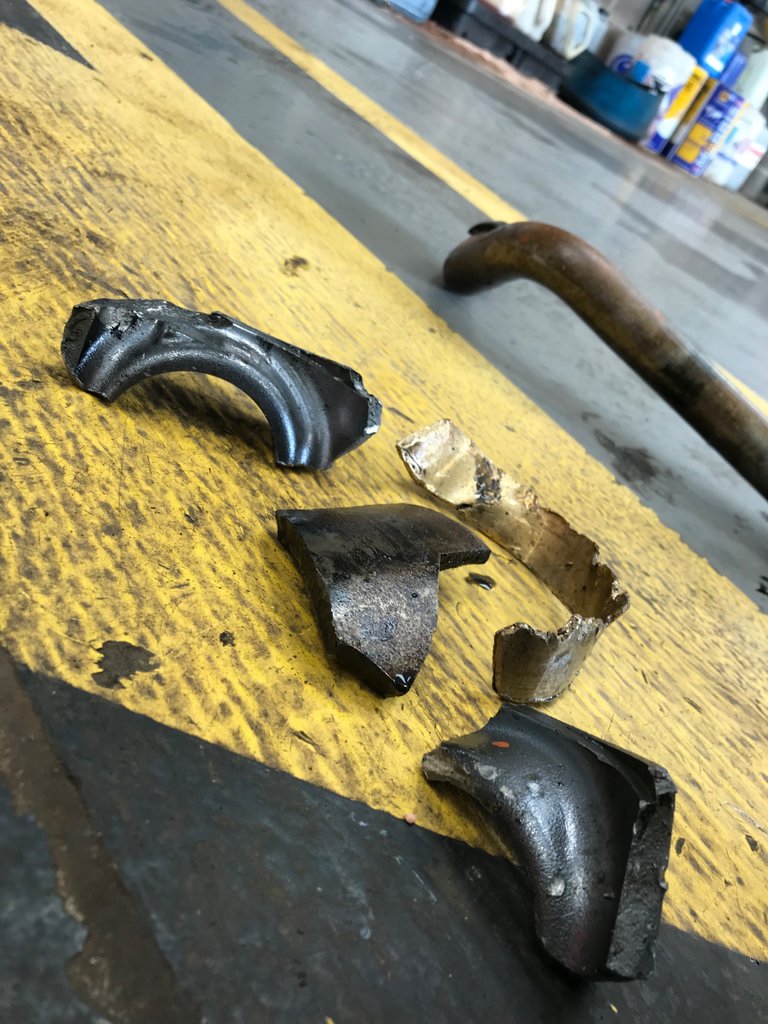
And all this damage cause by the restriction of oil to one single moving part. Just goes to show that you should always look after the basics. A regular oil change might be an inconvenience and an expense, but it beats having to buy a new engine that’s for sure!
Not sure if we’ll be repairing this engine. My guess is that we’ll be buying a 2nd hand lump from somewhere and replacing the whole thing. Don’t think I’ll be sticking my hand up for that job in a hurry.
Ok, well, thanks for stopping by and feel free to drop a comment below. I’m sure I’ll be back with more truck yard adventures soon. Until then, good bye 👋
